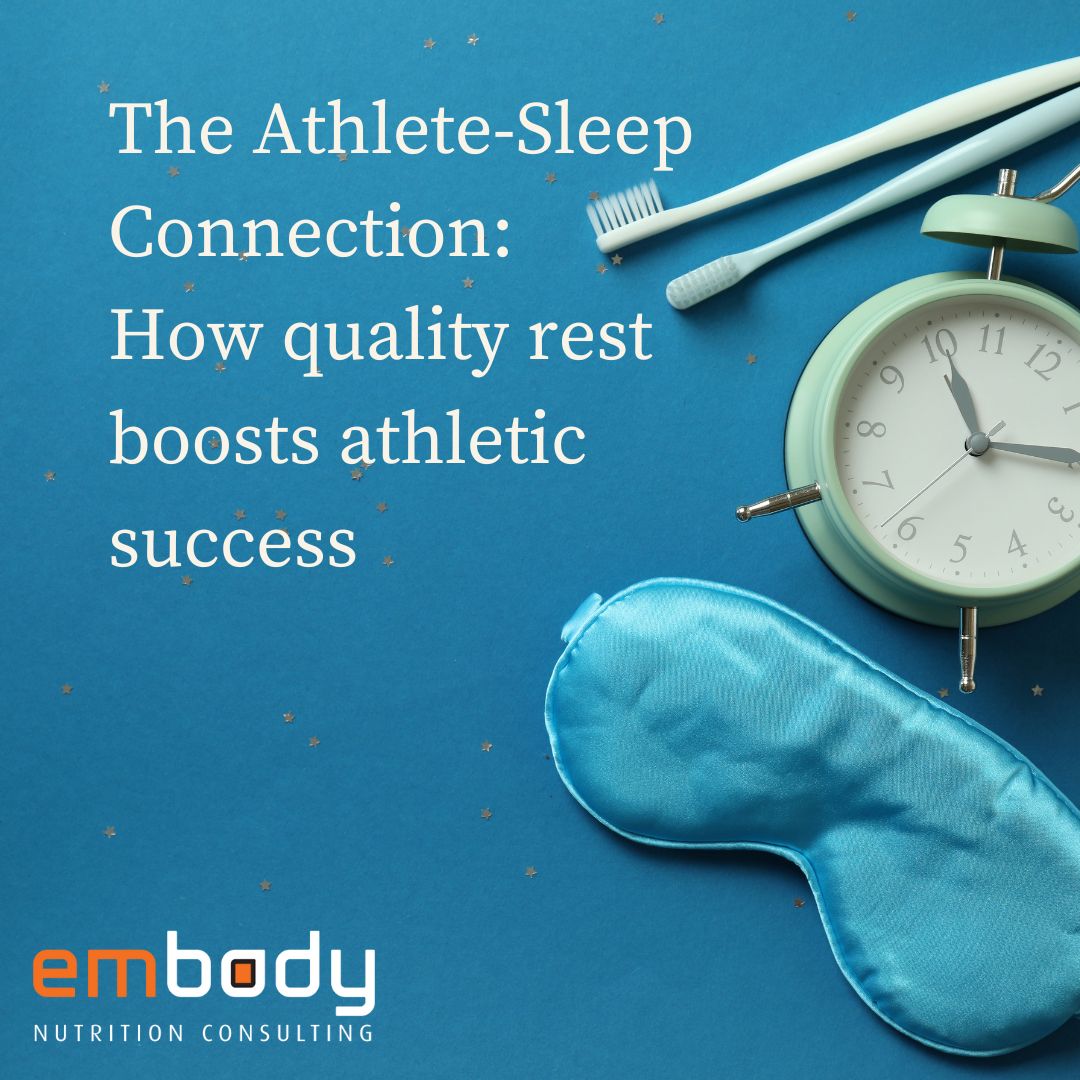Sleep is often called the “secret weapon” of athletes and is one of the most under-rated tools we have to enhance performance. While intense training and proper nutrition are vital components of athletic success, sleep is equally crucial. Over the past decade, numerous scientific studies have uncovered the profound impact of sleep on athletic performance. In this article, we’ll delve into the influence of sleep on performance as well as the nutrition strategies you can utilise to help you get a better night’s sleep.
The Science Behind Sleep and Athletic Success
Recent research has shown that sleep is more than just a time of rest; it’s a period of active recovery and preparation for athletes. During deep sleep, the body undergoes vital processes that directly affect athletic performance:
1. Muscle Repair and Growth: While we sleep, our bodies release growth hormone, which plays a pivotal role in repairing and building muscles. Adequate sleep ensures that the body can recover and repair from the stresses of training, leading to enhanced strength and endurance.
2. Cognitive Function: Sleep is essential for cognitive functions such as decision-making, reaction time, and memory consolidation. Athletes who are well-rested can make split-second decisions within training and games more effectively.
3. Hormone Regulation: Sleep regulates hormones, including cortisol (stress hormone) and leptin (hunger hormone). Poor sleep can disrupt hormonal balance, potentially leading to increased stress levels, appetite irregularities and altered patterns of eating.
Nutrition Strategies for Better Sleep
There are lots of different areas within an athlete’s lifestyle that can impact their sleep and nutrition is just one of them. There are plenty of myths out there on how certain foods can impact sleep but here are three key areas that can help to improve sleep in athletes.
1. Timing of Meals and Hydration
Pre-Bed Snack
Consuming a small, balanced snack before bed can help maintain stable blood sugar levels throughout the night, reducing the likelihood of waking up hungry. Opt for a snack that combines complex carbohydrates and protein, such as whole-grain crackers with peanut butter or yogurt with berries.
Hydration
Proper hydration is essential, but excessive fluid intake close to bedtime can lead to disruptive night-time awakenings. Aim to hydrate adequately throughout the day and consider reducing fluid intake in the hours leading up to bedtime.
2. Nutrient-Rich Foods that Promote Sleep
Certain nutrients in foods can promote better sleep:
Tryptophan: This amino acid is a precursor to serotonin and melatonin, which regulate sleep. Foods rich in tryptophan include turkey, chicken, nuts, seeds, and tofu. Incorporating these foods into your evening meal can potentially enhance sleep quality.
Magnesium: Magnesium has been linked to improved sleep quality. Leafy greens, nuts, seeds, and whole grains are excellent sources of magnesium. Consider adding magnesium-rich foods to your diet or consult with a healthcare professional if you are considering magnesium supplements.
3. Caffeine and Alcohol Moderation
Caffeine: While caffeine can provide an energy boost during the day, it’s essential to limit its intake in the hours leading up to bedtime. Caffeine is a stimulant that can disrupt sleep patterns, so avoid caffeinated beverages and snacks close to bedtime. If you are particularly sensitive to caffeine, it might be best to avoid caffeine from lunchtime onwards.
Alcohol: Although alcohol may initially make you feel drowsy, it can disrupt the quality of your sleep by interfering with REM (rapid eye movement) sleep, which is crucial for cognitive function and emotional well-being. If you choose to consume alcohol, do so in moderation and avoid it within a few hours of bedtime.
In the pursuit of athletic success, don’t overlook the power of sleep. We now know that quality rest is essential for muscle recovery, cognitive function, and hormone regulation. By incorporating nutrition strategies like timing meals, consuming sleep-promoting nutrients, and moderating caffeine and alcohol, athletes can optimize their sleep quality. Remember, sleep is not a passive activity; it’s an integral part of your training regime. Prioritise sleep, and you’ll find yourself on the path to better performance and overall well-being. Sweet dreams and successful endeavours await!

